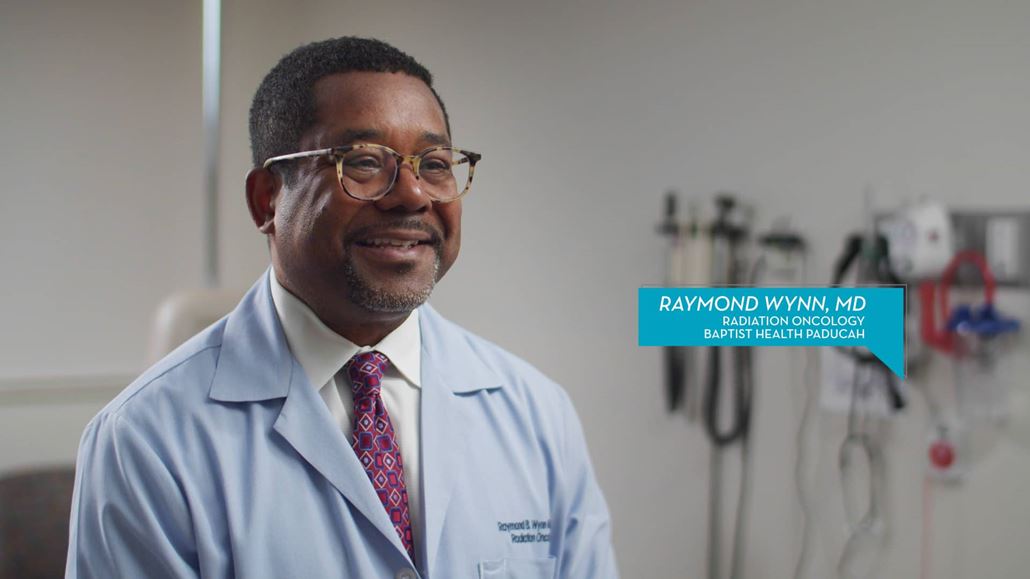Treating Cancer with Targeted Therapy in Paducah, KY

Treating Cancer with Targeted Therapy Health Talk Transcript:
Raymond Wynn, MD, Radiation Oncology
Baptist Health Paducah
Louise Parker, Benton, Kentucky
Raymond Wynn, MD:
SBRT, known as stereotactic body radiation therapy, is a specialized way that we use radiation to focus a very high dose to a small area. SBRT allows us to treat or even re-treat tumors that have previously been treated with radiation. [It’s] highly targeted [and] very successful, with very little side effects.
Louise Parker:
I was diagnosed on May 7. There was a spot on my lung that was suspicious. The pulmonary doctor's office referred me to Dr. Wynn. They called me, set up an appointment, and I met with them. A few days later they called and said, “Can you start?” I started the SBRT, and on May 24, the cancer was gone — kind of surreal.
Raymond Wynn, MD:
SBRT patients have as few as three treatments, and that makes a big difference — not only in the outcomes, but when it comes to patient care and patient satisfaction, they really like doing that.
Louise Parker:
It was such a good experience, if you have to go through this. It was just a good experience all the way around. I was diagnosed on May 7, cured on May 24. How can that be bad?



